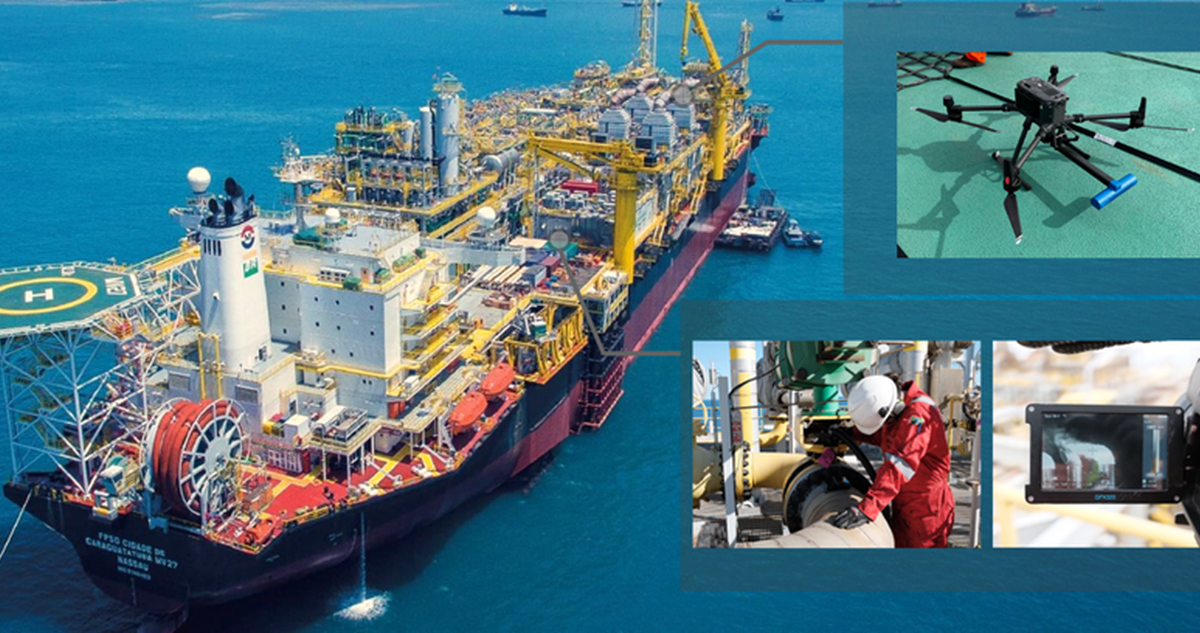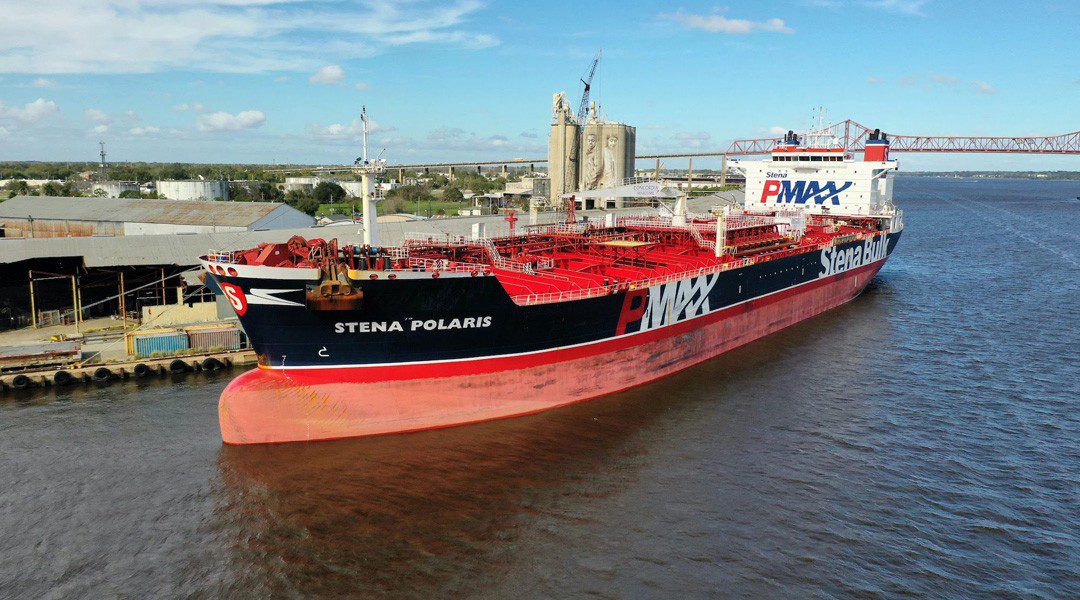 Modec and JGC used drones and sensors to measure and monitor GHG emissions from an FPSO in Brazil (source: Modec)
Modec and JGC used drones and sensors to measure and monitor GHG emissions from an FPSO in Brazil (source: Modec)
Modec is striving to reduce the carbon intensity of the floating production storage and offloading (FPSO) vessels it owns and charters out through design and applying new technologies
This all starts with monitoring methane and other greenhouse gases (GHGs) from its ships using sensors, and routeing the results and findings into future FPSO designs.
Modec worked with JGC Holdings Corp to measure emissions from two of its FPSOs operating offshore Brazil in 2023 and intends to do so on other assets in the coming years.
The Japanese shipowner sees these services as creating value for its clients, major corporate and state-backed oil companies, by providing emissions quantification services and planning and implementing emissions-reduction measures.
JGC and Modec quantified emissions of the three GHGs – methane, NOx and hydrofluorocarbons (HFCs) from July to September 2023 on two Modec-chartered FPSOs off the coast of Rio de Janeiro.
JGC’s HighGuard measurement service was used for methane and other GHGs as part of a monitoring, reporting and verification methodology.
They selected two methods of onsite measurement: a bottom-up approach using hand-held sensors and infrared cameras; and a top-down approach using drones.
JGC and Modec measured around 15,000 potential methane emissions points on each FPSO and used drones to measure plant-wide emissions.
This methodology meets the requirements of the highest levels, four and five, in the reporting framework established by the Oil & Gas Methane Partnership 2.0 (OGMP 2.0), an international methane emissions mitigation programme.
Verification of the measurement results confirmed the combination of these two approaches enables quantification of GHG emissions with much greater precision than conventional desktop calculations.
Modec said “the results are considered to be highly reliable from an international standpoint.”
Other results established “a highly reliable methodology for measuring methane emissions by combining multiple measurement technologies and identifying individual methane emissions points on FPSOs, with results leading to specific emissions prevention measures.”
Modec said it would use these results to improve the precision of GHG emissions calculations and expand the scope of emissions data disclosure.
It would provide emissions quantification services that are compliant with frameworks such as OGMP 2.0 and improve FPSO design to reduce emissions.
“Improved FPSO design and operation achieved through the application of new technologies, discovered and then proven, will also reduce the carbon intensity of Modec’s FPSO services and contribute to decarbonisation of the global energy supply chain,” Modec said.





